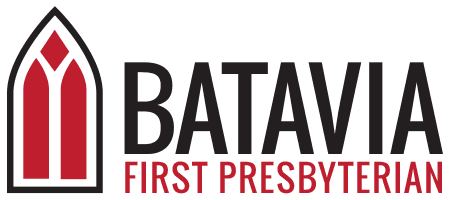
Financial Freedom: Living a Life of Fulfillment
“Financial Freedom: Living a Life of Fulfillment”
Matthew 14:13-21
We have come to the end of this sermon series and hopefully today we will affirm what it means to live with a sense of financial freedom. The big idea behind this series is that we only feel free financially when we are able to live by the values and vision of God for our lives. This is true of every aspect of our lives, but especially when it comes to money. We live in a culture that assumes scarcity as the state of the world and thus we swim in the deep waters of fear and competition. We learn this story of scarcity in childhood and live by it until something wakes us up and helps us to examine the validity of this story. That is the role of faith in our lives. It connects us deeply with the divine essence of life to see the world and our lives more clearly.
Faith helps us to choose the path of love and freedom even when the world around us is filled with fear. The transformation that happens to us through faith is about living to our fullest potential and helping our world to evolve and grow into the ways of love and sharing.
Lynne Twist uses a beautiful image to talk about this. She uses the image of the caterpillar turning into a butterfly. She writes, “the caterpillar, at a certain point in its life cycle, becomes a voracious, overconsumptive glutton consuming everything in sight and within reach. At this point in its evolution it can eat hundreds of times its own weight, and the more it consumes the more fat and sluggish it gets. At that same moment of developmental excess, inside the caterpillar the imaginal cells begin to stir. Imaginal cells are specialized cells, and in the minority, but when they connect with each other they become the genetic directors of the metamorphosis of the caterpillar. At some point in the caterpillar’s feeding-frenzy stage, the imaginal cells usher in the process in which the overconsumptive caterpillar becomes the ‘nutritive soup’ out of which the imaginal cells create the miracle of the butterfly.” Twist sees this as an apt metaphor for our time. We are in the overconsumptive phase. Here is a video that expands on this metaphor and where we are:
The power of faith is to help us connect the power of the imaginal cells, the power of the soul in our world to the ways we live and respond. Even though we may feel powerless against the tidal wave of scarcity in culture, we have to remember that what we are calling forth is God’s sacred process of transforming the ugliness and fears of our lives into beauty and care.
Our Bible story for today is about such transformation. This was a time of fear and uncertainty for Jesus, his disciples, and all his followers. Just before this episode in Matthew's Gospel, the writer had recounted how Herod Antipas beheaded John the Baptist and had his head presented on a platter. Matthew has John's disciples come and tell Jesus of the execution. John the Baptist was the one who preached and prepared for the ministry of Jesus. He was his colleague in ministry, a prophet and a teacher. Matthew's Gospel account had told us of the beheading of John the Baptist - killed because he denounced Herod Antipas' marriage to his brother Philip's wife when Philip was still alive (a violation of Jewish law). After hearing the sad news, Jesus went to a lonely spot as a direct response to John's execution. Maybe Jesus saw the writing on the wall for him. He could be next. But people followed Jesus to his place of solitude. Maybe they needed to be comforted and assured themselves. The world was closing in on them! The dream of the Kingdom of God becoming a reality in their lives seemed so unlikely under the political circumstances of their day. The disciples were fearful and thus responded out of their sense of scarcity. When Jesus asked them to give people something to eat, they wanted to send the crowd away. They thought that Jesus was asking them to go out and buy food for everyone. They had forgotten about how God provided the people of Israel with manna in the desert. They had forgotten about the story of the Prophet Elisha's multiplication of the barley loaves that were given to him by a servant. They had forgotten about the power of a community sharing what they have in order to survive. They also forgot about God's vision for abundance. They were controlled by their fear of scarcity because it seemed that the Roman system of scarcity and domination was winning. Their vision of what was possible was reduced to nothing! No room for imaginal cells transformation in that mindset! But when the disciples gave their five loaves and the two fish, people began to share, and the miracle happened.
This is an amazing miracle of a group of people being transformed from being fearful and grieving to a people who are able to step outside of themselves to serve the greater good of the whole community. Their worldview was headed in the direction of a survival mode, but this miracle was about them being rerouted into the path of faith, generosity and openness.
This is certainly a story of a miracle, but it is not what we have traditionally limited it to. For centuries, this story has been viewed as a magic/supernatural act of multiplying the bread, despite the fact that there is nothing "supernatural" reported in the Gospel itself. What we are told is that "they all ate and were filled." Most likely the people shared the food they had with them. A peasant in Palestine, then and now, travelled with food. In his book, Binding the Strong Man, Ched Myers writes (Slide), "The only 'miracle' here is the triumph of the economics of sharing within a community of consumption over against the economics of autonomous consumption in the anonymous marketplace."
With the traditional understanding of Jesus' transforming of the loaves, we would put the focus on the loaves themselves experiencing transformation and becoming an endless supply of bread. But with looking at the story in its context and paying attention to its details and symbols, we can see that what was really transformed were the selfish hearts of five thousand men to be inspired to share the food that they brought with them. The real transformation then, was not of the loaves, but of five thousand selfish minds. Which would be the greater miracle? I think it is easier for us to focus on the transformation of the loaves in order to avoid focusing on the power of transformation of our selfish minds so that liberation comes to our lives and the lives of all in our communities.
What we learn from this story is the amazing promise of hope for our world when we learn to share and cooperate. When we dig deep down in our hearts and souls, we are able to live by God’s vision for our world where financial freedom, sharing and sufficiency are the norms. Remember these few truths from this sermon series:
- The Power of Daily Practice of Gratitude
- The Necessity of Daily Spiritual Practices of Centering (accessing our souls)
- The Need to be Intentional about Letting Your Money Express Your Soul
- The Sufficiency that Is Deep within Your Soul
- The Six Currencies we have (relationships, money, time and place, truth, wellness, and gracious leadership)
- The Importance of Keeping the Cycle of Blessings Going through Generosity and Giving
We are going to end with a prayer practice that uses the two cards that were enclosed in your bulletin. The first one is that of naming your financial fears and anxieties. Even if you don’t have any yourself, think of the world and how you relate to the fears of scarcity around you. We will take time to reflect on this either alone or by sharing with a neighbor.
Financial Anxiety:
Finish the following sentences and then share with a neighbor:
When I am anxious about money, I …
When I am afraid about money, I …
When I am troubled about money, I ….
When I notice another is anxious about money, I …
When I notice another is afraid about money, I …
When I notice another is troubled about money, I ….
Financial Freedom:
Faith is about remembering God’s story of abundance and the sufficiency of our souls. Reflect on how remembering your connection to God helps you during times of financial anxiety. Now complete these sentences:
When I ………, I will not be anxious.
When I ………, I will not be afraid.
When I ….….., I will not be troubled.
I invite you when you come for communion (second service -to bring our estimate of giving cards) to bring the first card with you and lay it at the foot of the cross as an act of faith to invite God to transform any scarcity fears that haunt you and rob you of your sense of peace. Amen.
